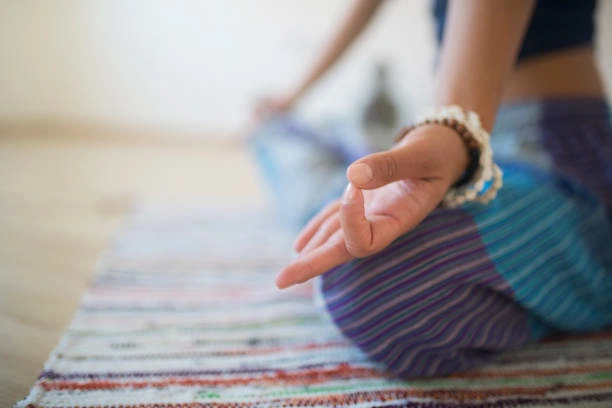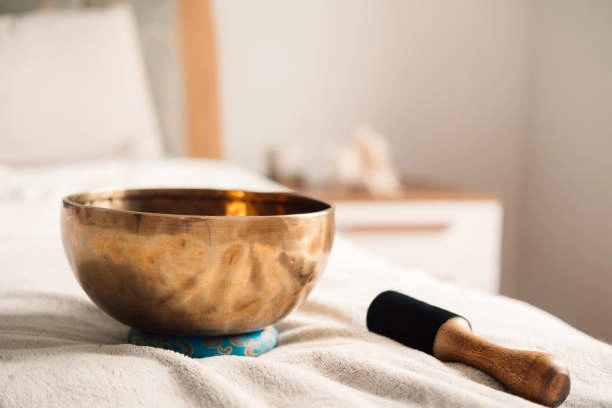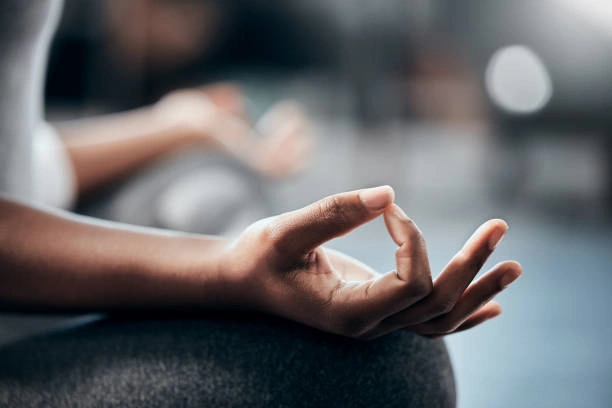Zen Meditation and Awakening: The Connection Between Meditation and Sleep
In the busy urban life, people spin like tops, chasing fame and dreams, often neglecting the deep-seated desire for peace and rest. Sleep, seemingly simple yet crucial, has become an unattainable luxury for many. Meditation, an ancient practice, is emerging as a bridge that connects body and mind, promoting deep sleep and leading us towards a profound dialogue and harmonious dance between mind and body.
1. Meditation: A Harbor for the Mind, the Prelude to Sleep
Meditation, also known as sitting meditation or mindfulness, is a practice that involves adjusting the breath and focusing attention on a specific object to achieve a state of mental clarity and unity of body and mind. It is not merely about keeping the body still but also deeply relaxing and purifying the mind. During meditation, we seem to find ourselves in a peaceful harbor, with the noise of the outside world isolated, leaving only ourselves and the rhythm of our breath.
Meditation sets the perfect prelude for sleep. When we sit down, close our eyes, and focus on our breathing, the body gradually relaxes, and the mind settles. This state of relaxation lays a good foundation for subsequent sleep. As a seasoned meditation practitioner says, “Meditation taught me how to relax, how to find inner peace amidst the hustle and bustle. When I lie down to sleep, that sense of calmness accompanies me, making it easier to drift into slumber.”
2. Meditation and Sleep: Dual Nourishment of Body and Mind
There is a profound connection between meditation and sleep. Meditation can regulate the nervous system and reduce the body’s stress response, thus improving sleep quality. During meditation, we learn to breathe deeply and relax the body, techniques that are also useful during sleep. When lying in bed, we can use the breathing methods learned in meditation—breathing slowly and deeply, feeling the flow of breath within the body—allowing the body to relax gradually and the mind to quiet.
At the same time, meditation enhances our self-awareness, helping us better understand our emotions and needs. This self-awareness is also important for sleep. When we clearly recognize our sleep needs, we can better adjust our routines to ensure enough rest time. If we encounter sleep problems, such as insomnia or frequent dreaming, meditation can help us find solutions, making sleep smoother.

3. How Meditation Promotes Deep Sleep
Deep sleep is the most important stage of the sleep cycle, crucial for the body’s recovery and restoration. However, the fast pace and stress of modern life often prevent us from getting enough deep sleep. Meditation, as an effective relaxation method, can help promote deep sleep.
During meditation, we learn to relax the body and focus attention. This state of relaxation and concentration is also beneficial for sleep. When preparing to sleep, we can use the techniques learned during meditation to gradually relax the body and calm the mind. This relaxed state helps reduce physical tension, lowering anxiety and restlessness before sleep, making it easier to enter deep sleep.
Additionally, meditation can regulate the nervous system and balance hormone secretion in the body. During meditation, our breathing becomes slow and deep, heart rate gradually decreases, and blood pressure stabilizes. These physiological changes help reduce stress hormones like cortisol, minimizing the body’s stress response. This balanced state continues during sleep, contributing to a deeper sleep experience.
4. Meditation and Sleep: A Harmonious Dance of Body and Mind
Meditation and sleep are not merely a simple cause-and-effect relationship but a harmonious dance of body and mind. In meditation, we learn to relax, concentrate, and regulate breathing, and these skills are equally useful for sleep. When we achieve sufficient deep sleep, our bodies are fully restored, and our minds nourished and calmed. This harmonious state, in turn, enhances our meditation practice, allowing for deeper experiences.
The harmonious dance of meditation and sleep also manifests in their shared promotion of physical and mental health. Meditation reduces stress, alleviates anxiety, and improves emotional management, all of which contribute to better sleep quality. Meanwhile, good sleep keeps us energetic and mentally sharp during the day, better equipped to handle life’s challenges. This positive cycle nourishes and enhances our body and mind.

5. Practical Guidelines for Meditation and Sleep
To better experience the harmonious dance between meditation and sleep, we can follow these practical guidelines:
- Choose the Right Time for Meditation: The best times for meditation are in the morning upon waking up or at night before sleep. Morning meditation helps clear the mind and start the day, while evening meditation relaxes the body and prepares for sleep.
- Create a Comfortable Meditation Environment: Choose a quiet, ventilated, and softly lit place for meditation. You can use incense or play soft music to create a relaxing atmosphere. Make sure to maintain a comfortable posture to avoid discomfort that could affect meditation.
- Master the Correct Meditation Posture: Sitting cross-legged, kneeling, or sitting on a chair are all suitable for meditation. Keep the spine straight but not rigid, and place the hands naturally on the knees or in a mudra. The eyes can be slightly closed or gaze at a spot about a meter in front.
- Regulate Breathing and Focus Attention: Deep breathing is key in meditation. Slow, deep breaths help relax the body and mind. Focus on the breath, feeling each inhalation and exhalation, or choose a simple object as the focus, like a statue or candlelight. When attention drifts, gently bring it back.
- Practice Consistently and Integrate It into Daily Life: The effects of meditation and sleep are not immediate; consistent practice is required. Start with a few minutes each time, gradually increasing to 20, 30 minutes, or longer. Also, integrate meditation’s principles into daily life, maintaining mindfulness and relaxation to keep the mind clear and calm.
- Adjust the Sleep Environment: Besides meditation practice, pay attention to the sleep environment. Ensure the bedroom is quiet, dark, and cool, use comfortable bedding, and wear breathable sleepwear. These factors help improve sleep quality.

Conclusion: Making Meditation and Sleep an Art of Life
Meditation and sleep, one still and one dynamic, one inward and one outward, together form the foundation of physical and mental well-being. Through meditation, we learn to relax, focus, and regulate our breathing. Through sleep, we allow the body to fully recover and the mind to be nourished and soothed. Let meditation and sleep become an art of life, leading body and mind in a harmonious dance towards a better future.
In this deep dialogue and harmonious dance of body and mind, we gain not only physical relaxation and recovery but also mental peace and freedom. Let us cherish every opportunity for meditation and sleep, allowing body and mind to grow and elevate continuously in tranquility and harmony.







